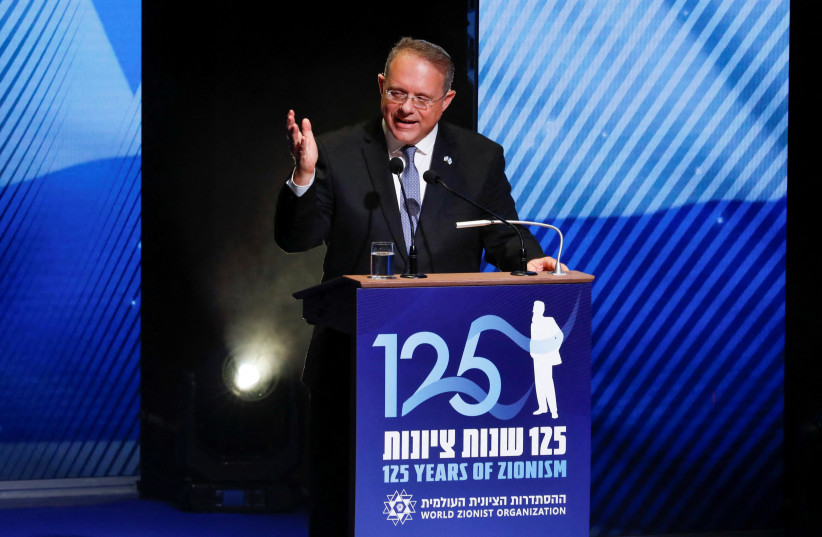The Monday conversation between Prime Minister Benjamin Netanyahu and Tesla CEO Elon Musk, aimed at addressing concerns about antisemitism, has ignited a lively debate among senior officials within the World Zionist Organization. This discussion commenced on Monday and continued with full vigor on Tuesday.
On Monday, Yizhar Hess, the vice chairman of the WZO, voiced strong criticism, while chairman Yaakov Hagoel expressed support for the meeting. On Tuesday, Rabbi Pesach Lerner, the head of the Eretz HaKodesh faction within the WZO, launched an attack on Hess, stating, “I must express my condemnation for the words spoken by the representative of the Conservative movement.”
Lerner criticized Hess for consistently using his position as deputy chairman of the WZO to advocate personal political views that diverge from the Israeli government’s stance and the principles of Zionism. He argued that it’s inappropriate for individuals in official roles within national institutions to use their platform to undermine the legitimacy of the elected prime minister of Israel as he works to enhance the country’s global standing.
Lerner suggested, “Instead, it would be more constructive for Mr. Hess to focus on domestic matters and address the actions of a member of the Reform movement who engaged with supporters of terrorism, such as [PA head] Mahmoud Abbas. In the past, Mr. Hess himself has expressed concerns about the implications of all Jews immigrating to Israel, emphasizing the need for a more balanced perspective.”
In response, Hess stated, “Rabbi Lerner is our esteemed partner within the Zionist Organization, and I am proud to be one of its leaders. I am confident that, despite the recent ‘unprecedented attack’ on me, Rabbi Lerner will remain steadfast in our coalition alongside Conservative and Reform Jews. He has consistently proven to be a reliable and dedicated partner.”

Hess attempted to diminish Lerner’s stance by pointing out, “Just last week, when we issued a strongly worded condemnation of Rabbi Eichler’s blasphemous remarks, Rabbi Lerner’s representative did not cast a vote against it.” Last week, United Torah Judaism MK Yisrael Eichler responded to what he termed “Netanyahu’s words of ignorance” by claiming that “only in Israel has Jewish blood been shed like water” and criticized the role of Zionists and partisans during the Holocaust.
WZO head praises Netanyahu-Musk, deputy criticizes it
On Monday, Hess, representing the Conservative Movement within the WZO, expressed concerns about the timing and consequences of Netanyahu’s engagement with Musk. He stated, “Jews everywhere are responsible for each other. We are one family. Choosing to associate with Elon Musk at a time when antisemitism is rampant on X not only sends the wrong message to Jews worldwide but also puts them at risk. Combating antisemitism requires decisive action, not mere words and hope. Today’s discussion, at the very least, appeared to legitimize inaction. I’m proud to stand with the ADL and all those fighting the world’s oldest form of hatred.”
In contrast, Hagoel, a member of Likud, held a different perspective on the meeting. Contradicting Hess’s criticism, Hagoel swiftly issued a statement expressing support for Netanyahu’s conversation with Elon Musk. He emphasized the meeting’s importance in the fight against antisemitism and reducing antisemitic discourse on social networks worldwide. Hagoel added, “On the other hand, the meeting will contribute to the development and prosperity of the Israeli economy.”
Hagoel’s statement underscored the divergence of opinions within the WZO. While Hess criticized the meeting as potentially harmful to the global Jewish community, Hagoel regarded it as an opportunity to effectively address and combat antisemitism while strengthening Israel’s economic ties.
